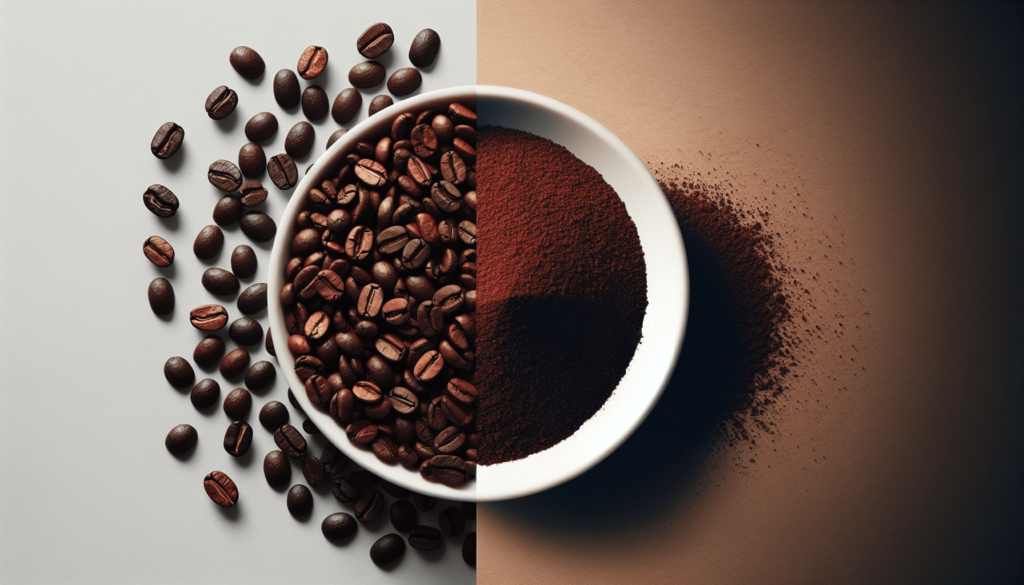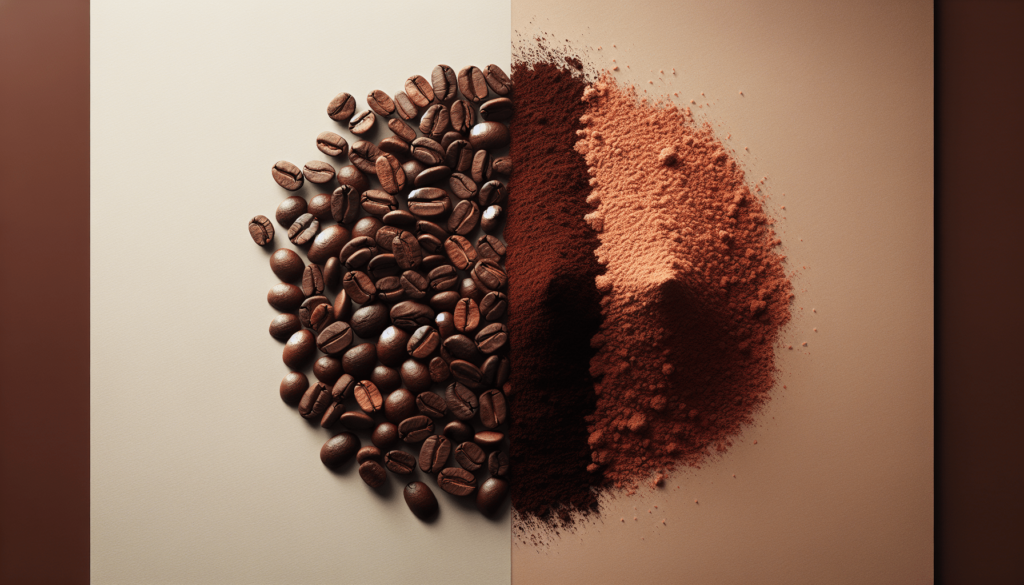Have you ever wondered what the difference is between coffee beans and coffee powder? If you have, you’re certainly not alone. With so many coffee options available, understanding the distinctions can help you make better choices based on your tastes and needs. Let’s journey through this aromatic world and unravel the mysteries behind coffee beans and coffee powder.
Introduction to Coffee
Before diving into the differences, it’s essential to understand what coffee actually is. Coffee is a brewed beverage made from roasted coffee beans, which are the seeds of berries from the Coffea plant. This magical drink has come a long way from its origins and is enjoyed by millions worldwide in various forms.
What Are Coffee Beans?
Origin and Types of Coffee Beans
Coffee beans come from the cherries of coffee plants. These cherries are harvested, processed, and then roasted to create that rich flavor and aroma you know and love. Two primary types of coffee beans are used globally: Arabica and Robusta.
Arabica vs. Robusta:
| Aspect | Arabica | Robusta |
|---|---|---|
| Flavor | Smoother, sweeter | Stronger, more bitter |
| Caffeine | Lower caffeine content | Higher caffeine content |
| Growing Regions | Primarily Latin America & Africa | Mostly Africa & Southeast Asia |
Processing of Coffee Beans
Coffee beans undergo several steps:
- Harvesting: Coffee cherries are picked by hand or machine.
- Processing: Cherries are processed using methods like ‘wet’ or ‘dry.’
- Drying: Beans are dried until they reach optimum moisture levels.
- Roasting: The beans are roasted to various degrees to develop their flavors.
- Grinding: Beans can be ground to different consistencies depending on the brewing method.
Each step contributes to the final flavor profile, aroma, and quality of your coffee.
Brewing with Coffee Beans
If you enjoy a fresh cup of coffee, investing in whole beans could be the best option. You can grind the beans just before brewing, ensuring maximum freshness and flavor. Various brewing methods include French press, pour-over, and espresso, each offering a unique coffee experience.

What Is Coffee Powder?
Definition and Types of Coffee Powder
Coffee powder, more commonly known as ground coffee, is simply coffee beans that have already been ground. Not to be confused with instant coffee, which is a completely different product, ground coffee offers convenience without compromising too much on quality.
Types based on grind size:
| Grind Size | Ideal Brewing Method |
|---|---|
| Coarse | French Press, Cold Brew |
| Medium | Drip Coffee Makers, Pour-over |
| Fine | Espresso Machines |
Processing of Coffee Powder
The process of creating coffee powder is similar to that of coffee beans but includes an additional step:
- Grinding: Roasted coffee beans are ground to a specific size, depending on the brewing method.
- Packaging: Ground coffee is usually sealed immediately to retain its freshness.
Brewing with Coffee Powder
Ground coffee is compatible with various brewing devices, offering both convenience and versatility. It’s an excellent choice for those who want to save time without sacrificing the rich flavors that make coffee so delightful.
Key Differences Between Coffee Beans and Coffee Powder
Freshness and Aroma
Coffee beans retain their freshness and aroma for a longer period compared to ground coffee. Once coffee is ground, it begins to lose its aroma and flavor due to exposure to air and moisture.
Convenience
Ground coffee offers unparalleled convenience. It’s ready to use right out of the package, making it perfect for quick brewing. On the other hand, using whole beans requires a grinder, adding an extra step to your brewing process.
Customization
Whole beans offer more flexibility when it comes to customization. You can grind them to the desired coarseness, allowing you to experiment with different brewing methods and discover your perfect cup of coffee.
Cost
Generally, coffee beans can be a bit more expensive than ground coffee. This can be attributed to their longer shelf life and the additional equipment needed for grinding.
Sustainability
Whole beans often come in more sustainable packaging compared to ground coffee, which is frequently packaged in single-use plastic containers.

Factors Influencing Choice
Personal Preference
Your choice between coffee beans and coffee powder will largely depend on your personal preference. If you cherish the ritual of brewing and savoring the freshest coffee, beans may be the way to go. If convenience is your primary concern, ground coffee could be your best bet.
Lifestyle
Busy lifestyles demand quick solutions. Ground coffee offers a quick and easy option for those always on the go, while coffee beans allow for a more leisurely and customizable coffee experience.
Brewing Method
The type of coffee you prefer to drink can also influence your choice. If you enjoy espresso, you might lean towards whole beans for precise control over grind size. For a French Press, a coarse ground coffee is more suitable.
Conclusion
In conclusion, both coffee beans and coffee powder have their own set of advantages and disadvantages. Coffee beans offer superior freshness, aroma, and customization but require additional time and equipment. Ground coffee is incredibly convenient and still delivers a satisfying coffee experience. Your choice will ultimately align with your lifestyle, preferences, and brewing methods.
By understanding these differences, you can make an informed decision that best suits your needs and enhances your coffee-drinking experience. Enjoy your journey through this delightful world of coffee!
